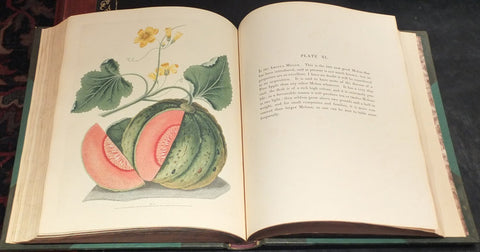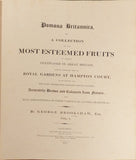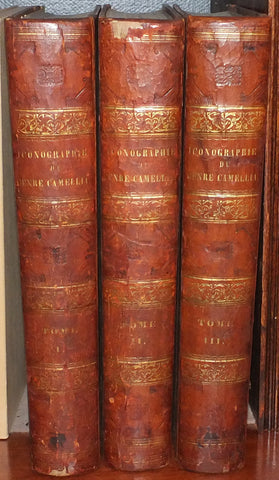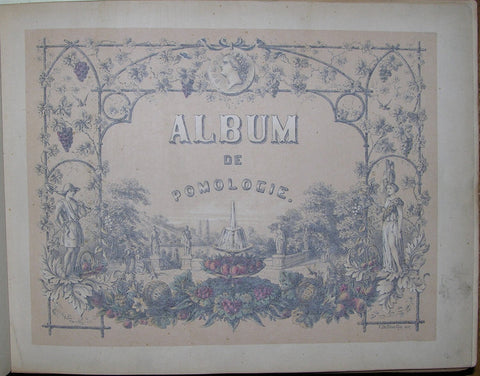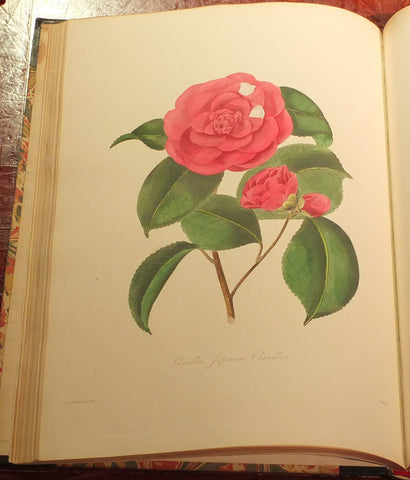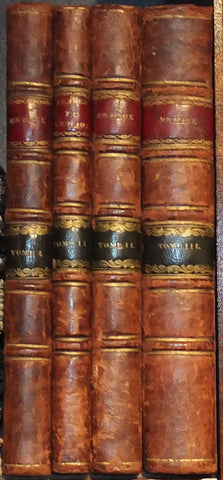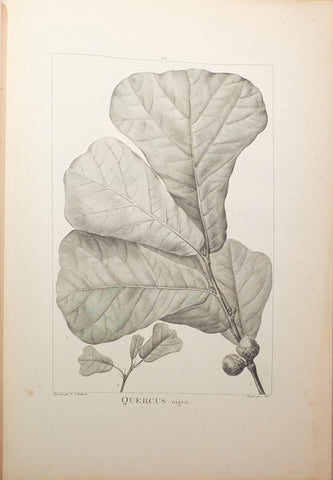George Brookshaw (1751-1823), Pomona Britannica, or a collection of the most esteemed fruits at present cultivated in Great Britain
George Brookshaw (1751-1823)
Pomona Britannica, or a collection of the most esteemed fruits at present cultivated in Great Britain
London: T. Bensley for Longman, Hurst, Rees, Orme & Brown and John Lepard, [1816]-1817
2 volumes in one. 4to., (13 2/8 x 10 6/8 inches). 2 letterpress title-pages, 4-page letterpress list of owners and locations of gardens at end. 60 EXCEPTIONALLY FINE AND BRIGHT stipple-engraved plates by G. Brookshaw, printed in colour and finished by hand (occasional light spotting). Modern half green morocco gilt. A FINE AND ATTRACTIVE COPY of first quarto edition. First published as a large folio between 1804-1812. This edition is essentially a new work: the format was reduced from broadsheet to quarto, the plates were re-engraved by the author himself, their number reduced from 90 to 60, and the text was extensively re-worked. In this new work the plates are more realistic and useful, if less opulent, and include details of 174 cultivars of 15 types of fruit. The table at the end lists the owners and locations of the gardens from which Brookshaw obtained his specimens. All of the gardens are found within, or a short distance from London. Brookshaw was something of an enigma during his lifetime. His first career as a cabinet-maker specialising in painted furniture garnered him considerable success, wealth and royal patronage. Then in the mid-1790s he suddenly separated from his wife and abandoned cabinet-making, turning instead to teaching drawing, and publishing drawing manuals under the name of G. Brown. "Brookshaw's most important published work, which indeed is of some botanical significance, was his finely illustrated treatise on fruit growing, the Pomona Britannica, issued in parts from 1804-when he first resumed his own name-and as a single folio volume in 1812. It was dedicated to his most illustrious former patron, the prince of Wales. But Brookshaw's renown in the botanical world never matched that of his cabinet-making career, and he failed to gain recognition by Sir Joseph Banks, Sir J. E. Smith, and other luminaries of the recently founded Horticultural Society-perhaps in part because of the mystery surrounding his past, which he undoubtedly suppressed deliberately" (Lucy Wood for DNB). Dunthorne 51; Great Flower Books (1990) p.81; Nissen BBI 244.
We Also Recommend

